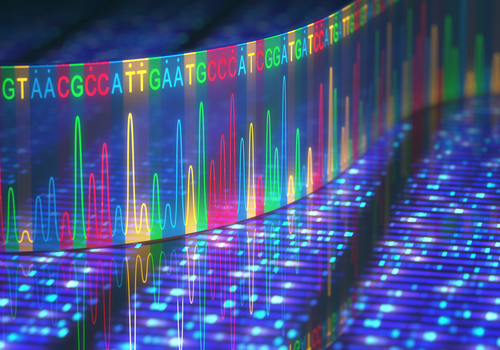Case Report Identifies Mutation in Non-complement Gene That Can Cause aHUS

Shutterstock
Researchers have identified a novel mutation in the gene DGKE that can cause atypical hemolytic uremic syndrome (aHUS) but is not part of the complement system, suggesting that complement activation does not always underlie the disease.
The case report, “Whole exome sequencing revealed a novel homozygous variant in the DGKE catalytic domain: a case report of familial hemolytic uremic syndrome,” was published in BMC Medical Genetics.
aHUS is characterized by clots that form in the blood vessels of the kidney, causing damage. These clots often form as a result of genetic mutations; most commonly, aHUS-causing mutations affect the complement system, which is group of more than 20 proteins involved in immune responses.
But mutations in other genes outside the complement system may also cause the disease.
Researchers at the Iran University of Medical Sciences reported the case of a 19-year-old female whose aHUS was caused by a previously unknown mutation in DGKE, a non-complement factor gene, and whose complement factors were all within normal levels.
The woman was the daughter of consanguineous parents who did not have aHUS. Her older sister had died at 7 months of age due to the disease.
The patient was suspected of having aHUS at the age of 7.5 months, when she was referred to the hospital due to labwork that indicated kidney damage (e.g. elevated creatinine). She also had anemia, caused by the death of red blood cells, and low platelet levels, which “were consistent with the hemolytic uremic syndrome,” the investigators wrote.
The patient and her parents underwent whole exome sequencing — a type of genetic sequencing that determines the sequence of only the parts of the genome that code for proteins, around 2% of the total genome.
The genetic analysis revealed that the woman, but not her parents, had homozygous mutations in the gene DGKE (diacylglycerol kinase epsilon), which encodes a protein of the same name. Homozygous means that the same mutation was identified in both copies of the gene (one inherited from each parent).
The specific mutation detected was termed c.942C > G or p.Asn314Lys, referring to the change to the genetic code and the resultant protein sequence, respectively.
Of note, DGKE is not a complement-associated gene, making it somewhat unusual as a cause of aHUS. Nonetheless, the DGKE protein “has strong prothrombotic [pro-clotting] effects,” the investigators wrote.
While DGKE mutations causing aHUS have been previously reported, this particular mutation has not. To further evaluate whether the mutation would be likely to cause disease, the investigators compared the wild-type and mutated DGKE protein using computational models.
“The results of prediction software packages and 3-D structure analysis suggest that the DGKE p.Asn314Lys variant might have a potentially pathogenic effect on enzyme activity,” they wrote.
Based on the above data, the researchers categorized the detected mutation as “likely pathogenic” — meaning there is evidence supporting the mutation as a cause of aHUS, but it hasn’t been definitively proven.
“We could consider the (c.942C > G, p.Asn314Lys) variant in DGKE as a causative variant for aHUS; however, additional studies on the effects of this variant on DGKE 3-D structure would be helpful for collecting more evidence,” the investigators concluded.





